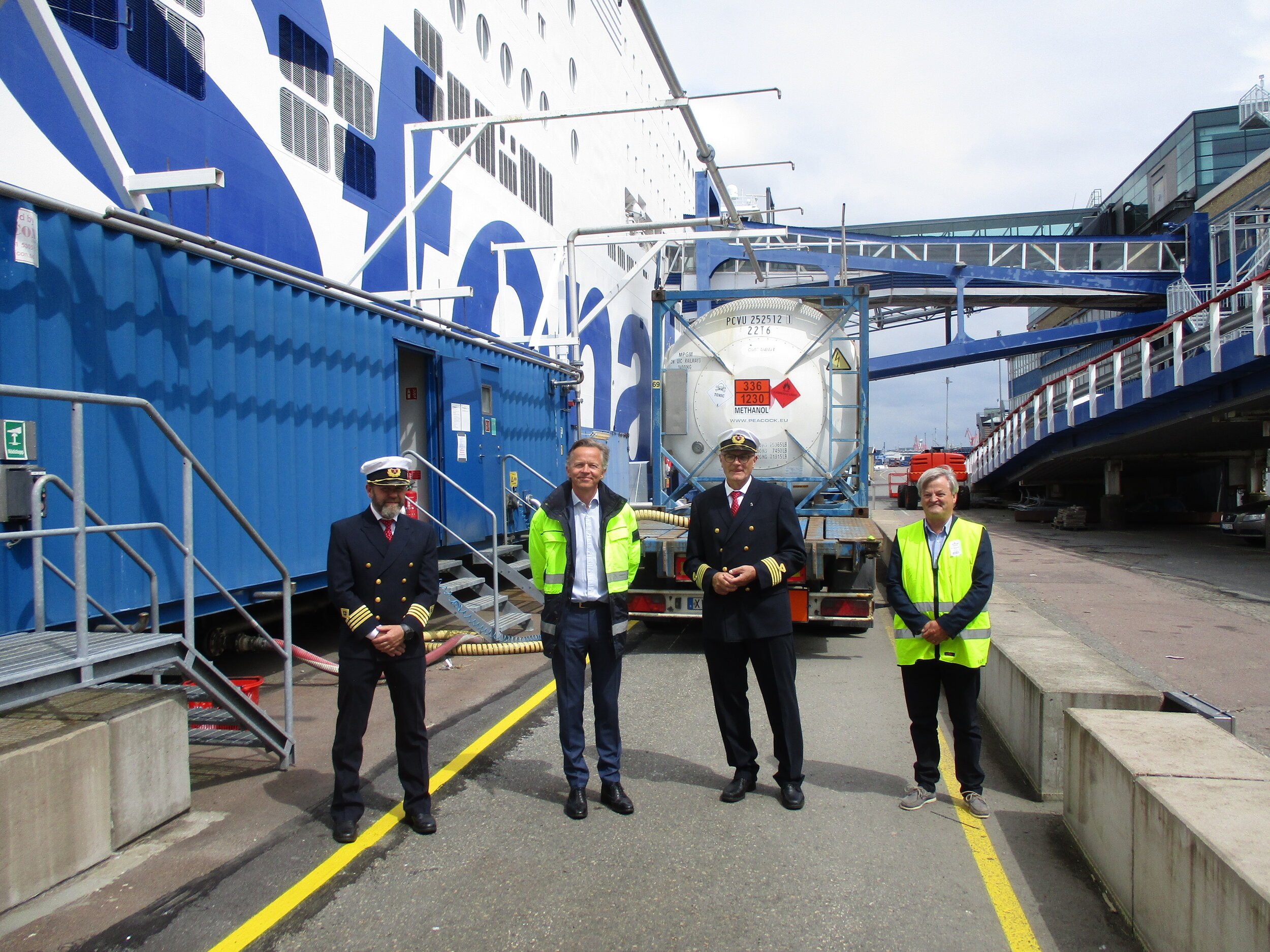FRESME PROJECT REACHES FINAL MILESTONE: FROM BLAST FURNACE WASTE EMISSIONS TO FERRY FUEL
The Horizon 2020 EU funded project FReSMe, has now been concluded. The main aim of the project was to demonstrate the whole process that enables capture and conversion of carbon emissions from the steel industry into methanol and to use it as a marine fuel. The final milestone was achieved when the methanol, produced at the Swerea MEFOS steel mill in Luleå, Sweden, was delivered and used to power the Stena Germanica RoPax ferry between Gothenburg and Kiel earlier this month.
The occasion was marked by a final event held online and hosted by the FReSMe consortium, to celebrate the successful conclusion of the project and to share the insights and experience gained. The FReSMe project results represents a significant achievement in field of carbon capture and utilization (CCUS). CRI’s Emissions-to-Liquids system module was configured to produce methanol from CO₂ and H₂, both recycled from the blast furnace by-product streams as well as using additional hydrogen from electrolysis.
“We are proud of our contribution to this project, which was successful in every way and are convinced that it will have a positive effect on the energy transition for maritime transport “ said Ingolfur Gudmundson CRI´s CEO.
The methanol produced in the FReSMe project and used by the Stena Germanica is a successful example of sector coupling. It is a promising alternative to the fossil derived bunker fuel currently used by most cargo shipping. It is cleaner burning, with no soot or sulphur oxides emissions. It is a liquid at ambient temperature and pressure, and its adoption does not require major investment by vessel owners.
In 2015 Stena Line made history by converting one of the largest RoPax ferries in the world, the 240-meter Stena Germanica, to become the world’s first methanol powered ferry. The first fully sustainable journey has now taken place with methanol recycled from residual steel gases produced by CRI and the project partners in the FReSMe project.
“A great collaboration between the steel industry and maritime, showing there are ways of drastically reducing climate impact by working together. For Stena Line this is another proof of concept for our methanol conversion and a bridge towards fossil free shipping” said Erik Lewenhaupt, Head of Sustainability Stena Line Group.
The marine sector is under pressure to change, with a 50% emissions reduction target for 2050 set by the International Maritime Organisation. At the same time the steel industry accounts for as much as 8% of global CO₂ emissions. Today there are multiple ships powered by methanol and many new ones are under construction. The most recent example is the Mærsk container shipping company that has recently announced the order of their first ship that will run on green methanol.
Stena Line representatives receiving and bunkering the methanol from recycled blast furnace gas delivered by CRI

